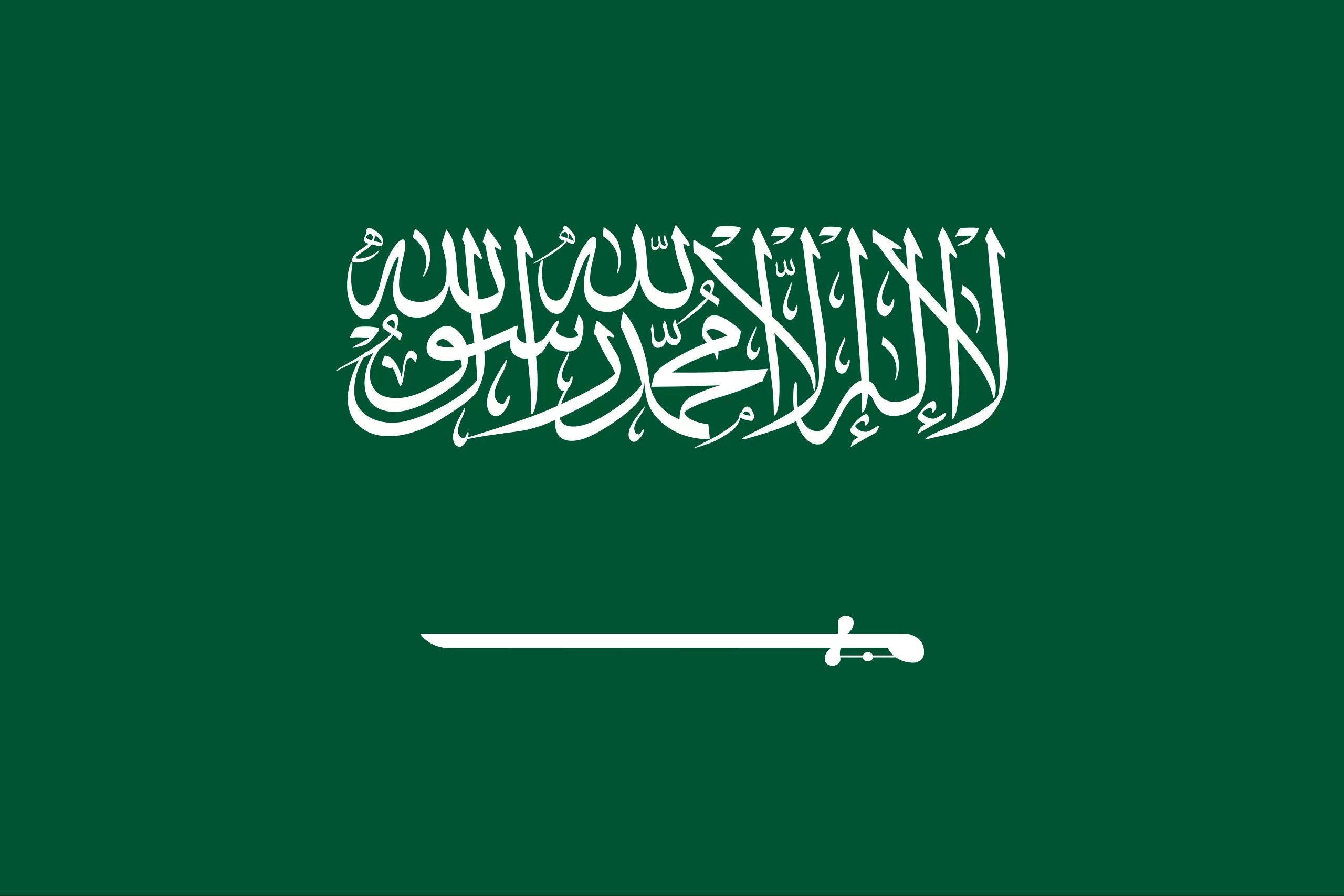

Saudi Arabia
Saudi Arabia (hereinafter referred to as "Saudi Arabia") is located on the Arabian Peninsula in western Asia. It is the largest economy in West Asia and North Africa, and its oil reserves and production are among the highest in the world. As the birthplace of Islam, Saudi Arabia is the home of Mecca, the first holiest city in Islam, and Medina, the second holiest city (the Saudi king enjoys the title of "Servant of the Two Holy Places"). Saudi Arabia implements a free economic policy, with a stable political situation and a sound financial system. Since the launch of the "Vision 2030" in 2016, Saudi Arabia has continued to promote social and economic reforms, the society has become increasingly open, the business environment has continued to improve, and the economic diversification plan has been steadily implemented. In 2021, the Saudi government successively launched the "Regional Headquarters" policy, the "Made in Saudi Arabia" plan, the "Green Middle East" and "Green Saudi Arabia" initiatives, as well as the "New Transportation Strategy" and "National Investment Strategy", launched the construction of "Special Economic Zones", etc., vigorously developed non-oil industries, advocated the development of digital economy and green economy, promoted the transformation and upgrading of industrial structure, and continued to expand the scale of new energy, cloud data, 5G, artificial intelligence, medical care, tourism and culture. Benefiting from the increase in oil production and prices, Saudi Arabia's GDP grew by 8.7% in 2022, with a per capita GDP of US$32,500.
Saudi Arabia has a population of about 34.81 million (as of the end of 2020), of which about 21.59 million are Saudis and about 13.22 million are foreigners, accounting for about 62% of the population. The labor force (aged 15 to 65) accounts for about 72% of the total population. 95% of Saudi Arabia's population is concentrated in large cities such as Riyadh and Jeddah. The number of Chinese and overseas Chinese in Saudi Arabia is about 30,000 to 50,000, mainly living in Taif, Jeddah, Mecca and other places in the west.
The main ethnic group in Saudi Arabia is Arab. Sunni Muslims account for the majority of the population and are distributed throughout the country. There are very few Shiite Muslims, mainly living in the eastern region. In addition, there are a small number of Bedouins. Chinese and overseas Chinese in Saudi Arabia are mainly engaged in small businesses, hotels and other service industries. The official language is Arabic, and English is widely used in the business community.
Islam is the state religion, with Sunnis accounting for 85% and Shias accounting for 15%. Religious activities other than Islam are prohibited in public places. Saudi Arabia has two major religious festivals a year: Eid al-Fitr and Eid al-Adha.
Taboos to be noted include: idol worship is strictly prohibited. Stores are not allowed to sell children's toys and dolls, and human sculptures are not allowed to be brought into public places, because in the minds of Saudis, there is only one God. Contact between men and women is taboo. Drinking is strictly prohibited. Drinking and brewing wine privately will be severely punished. The lighter ones will be sentenced to 6 months in prison or flogging. You cannot take pictures at will, and it is strictly forbidden to take pictures of women, religious facilities and royal buildings. Pork and all ugly and unclean things, such as turtles, are forbidden. It is taboo to pass things or food with the left hand, as this is considered to be insulting.
(1) Relevant regulations on trade management: In Saudi Arabia, the sale of consumer goods is one of the business areas that is not fully open to foreign investors. Saudi Arabia has issued laws and regulations on commercial agents. On the one hand, it has established the privilege that only Saudi nationals or locally registered trading companies can distribute foreign products in Saudi Arabia; on the other hand, by establishing a commercial agency system, foreign investors are allowed to designate local agents or distributors to sell on their behalf, and the agent and the product supplier establish the rights and obligations of both parties by signing a commercial agency agreement.
(2) Customs regulations: prohibited imports, pigs and their products, dog and frog meat, etc.; narcotics; natural organic fertilizers (made from animals or plants); cola nuts; alcoholic beverages; food products that use animal blood in the process; animal mummies; beverages with descriptions of the Zamzam well (a holy well in Saudi Arabia); betel leaves; snuff; cigarette promotional materials; asbestos and its products; sarin gas; industrial waste and hazardous waste; fireworks for children; remote-controlled aircraft and parts; two-wheeled, three-wheeled and four-wheeled motorcycles for children and other motor vehicles; noisy toy guns or toy guns that look like real guns; greeting cards with circuits (music or lighting); Hadi coupons (with sacrificial animals such as sheep, camels, etc.) (3) Foreign investment preferential policies: The Saudi Ministry of Investment offers a number of tax and financial preferential policies for foreigners who wish to invest in Saudi Arabia. Tax preferential policies include: duty rebates and exemptions on selected materials, equipment and machinery; reductions in personal income tax; and a corporate tax of only 20% on the profits of foreign companies (the lowest among G20 countries). Financial preferential policies include: foreign investors can participate in various regional and international financial programs sponsored by the Saudi government, such as the Saudi Export Program, the Arab Fund for Economic and Social Development, the Arab Trade Finance Program, and the Islamic Development Bank. The Saudi government has launched a series of programs to encourage foreign investment. In March 2021, the Saudi Crown Prince announced the "Partnership Program (Shareek)" to encourage investment in Saudi Arabia. Participating companies will be eligible for loans, grants and co-investments under the Shareek program, as well as special support from the Saudi government on regulatory and other issues. The Saudi Industrial Development Fund (SIDF) supports industrial investment in the private sector by providing medium- and long-term loans, the specific amount depends on the location of the project. For example, foreign investors who establish manufacturing facilities in developed regions (Riyadh, Jeddah, Dammam, Jubail, Mecca, Yanbu and Ras Al Khair) can obtain a 15-year loan of up to 50% of the project value; investors in the least developed regions can obtain a 20-year loan of up to 75% of the project value. In early 2022, Saudi Arabia launched the Regional Headquarters Program. Companies applying for regional headquarters licenses can also apply to the Saudi Ministry of Investment for relevant preferential policies, such as desertification rate exemption, visa matching preferences, spouse and children work visas, etc. Saudi Arabia has created a number of economic zones with preferential investment policies. The Saudi government launched special economic zones in 2022, focusing on investments in areas such as pharmaceuticals, biotechnology and digital industries. These areas will have a special legislative environment and include attractive incentives. The Saudi government is considering establishing special regulatory zones in NEOM and King Abdullah Financial District in Riyadh. In addition, four economic cities, including King Abdullah Economic City near Jeddah, Prince Abdul Aziz bin Mussad Economic City in the north-central region, Knowledge Economy City in Medina and Jizan Economic City in the southwest, can provide advantages such as logistics and ease of doing business. The Saudi Authority for Industrial Cities and Technological Zones (MODON in Arabic) oversees the development of 35 industrial cities, including some that are still under development, as well as private industrial cities and complexes. MODON provides incentives for business investment in these cities, including competitive industrial land rents, government-funded financing, export guarantees and certain customs exemptions. Jubail and Yanbu Industrial Cities offer companies a variety of incentives, including tax holidays, tariff exemptions, low-cost loans, and preferential land and utility rates. In May 2023, Saudi Arabia officially issued four new special economic zone licenses, which are located in Riyadh, Jizan, Ras Al Khair and Abdullah Economic City.
(4) Regulations on investment industries:
[Industries where foreign investment is prohibited or restricted]:
a. Exploration and production of petroleum resources (but excluding mining services under the international classification code 883-5115);
b. Production of military machinery and equipment and clothing;
c. Production of civilian explosives;
d. Supply of military supplies;
e. Investigation and security fields;
f. Real estate investment in Mecca and Medina;
g. Tour guide services related to Hajj and Umrah;
h. Labor services;
i. Real estate broker services;
j. Services related to printing and communication regulations (but not including some items under international classification codes 88442, 87501, 875, 96114, 962, 871, 86506, 88, 853, 87505, 87904, 96113);
k. Paid commercial agency services specified under international classification code 621;
l. Audiovisual services;
m. Nursing services, medical services and semi-medical services under international classification code 93191;
i. Fresh aquatic fishing;
o. Poison centers, blood banks and health quarantine agencies.
【Encouraged investment industries】
a. Energy-based industries: including crude oil refining, petrochemicals, fertilizers, desalination and power generation, metallurgy and mining industries, etc.;
b. Transportation and logistics: including aviation, railways, ports, roads, logistics, etc.;
c. Information and communication technology industries;
d. Medical and health care;
e. Life sciences;
f. Education.

Customized overseas services for Chinese enterprises
Helping Chinese companies to expand overseas with less worries
